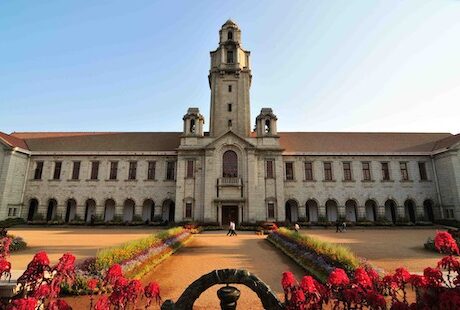The Indian Institute of Science (IISc) is a public, research university for higher education and research in science, engineering, design, and management. It is located in Bengaluru, in the Indian state of Karnataka. The institute was established in 1909 with active support from Jamsetji Tata and thus is also locally known as the “Tata Institute”. It is ranked among the most prestigious academic institutions in India and has the highest citation per faculty among all the universities in the world. It was granted accreditation with university status by the Department of Higher Education India in 1958 and the Institute of Eminence status in 2018.
In the 1960s, 70s and early 80s, under the stewardship of Director Satish Dhawan (an eminent aerospace engineer who also led ISRO), the Institute grew further to include a diverse range of research areas from materials science, computer science and automation, and molecular biophysics, to interdisciplinary work under the Centre for Theoretical Studies, which eventually led to the formation of other centers in ecology, atmospheric and oceanic sciences, and more. The social impact of advancements in science was also a key focus during this period, particularly under the Cell for Application of Science and Technology to Rural Areas (ASTRA), which continues today as the Centre for Sustainable Technologies.
Moving into the twenty-first century, IISc has set up an undergraduate program, several new departments and centers in the areas of brain research, nanoscience and engineering, hypersonics, and more, strengthened ties with industry, and incubated several start-ups. It has also expanded to include a 1500-acre campus at Challakere in Chitradurga district, Karnataka.

Shantanu Chakrabartty
Ambassador to Indian Institute of Science
Clifford W. Murphy Professor, Vice Dean for Research and Graduate Education, McKelvey School of Engineering
